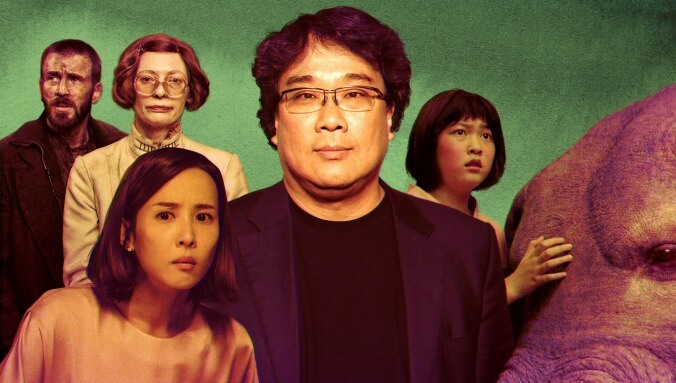Director Bong Joon ho on his favorite filmmakers and the rich kid who inspired Parasite

We’ve still got a couple of months left to go in 2019, but at this early stage, Bong Joon ho’s Parasite might be the movie of the year. It’s the entertaining yet incisive critique of late capitalism that Adam McKay wishes he could have made, as well as a brilliantly constructed Hitchcockian identity thriller, farcical comedy, and family drama, all wrapped up into one film. Bong’s most faithful collaborator, Song Kang-ho, stars as Ki-taek, patriarch of the impoverished Kim family, who as the movie opens is struggling to get by on odd jobs and stolen wifi. Then a childhood friend of son Ki-woo (Choi Woo-sik) recommends him for a gig as an English tutor for the wealthy Park family, whose immaculately curated lives of luxury couldn’t be more different from the Kims’ hardscrabble existence.
An hour into the film, the entire Kim family has ingratiated themselves with the Parks, displacing and replacing the rich family’s existing staff through a combination of subterfuge and some good old-fashioned fast talking. It seems that the Kims are the parasites of the title—until everything gets turned upside down. The shift from bright satirical comedy to deep pathos is as subtle as the whiplash from Bong hitting the film’s narrative breaks is jarring. All of it is signature Bong, the handiwork of a director who’s made a career out of playfully reinventing genres in films like Memories Of Murder, The Host, and Snowpiercer.
Parasite takes Bong back to his own college days, when he was a tutor for a rich family not unlike the Parks in his new film. We asked him about that gig when Bong came to Austin for Fantastic Fest, in a discussion that digs into some of the politics and themes of the film, but he always returned to one topic: his own love of movies.
The A.V. Club: There are some recurring themes in your work that one could argue are very political: ecological themes, for example, and class conflict. At the same time, your films are also structured in a very classically cinematic way, which is often considered escapist. Do you consider your films to be political?
Bong Joon ho: “Cinematic” is a word I really like. As a film fanatic myself, I always want to shoot films that deliver that sense of cinematic excitement. So that’s something I prioritize. And I think that in order to achieve that, I need to introduce really interesting individuals. So rather than big political themes, I focus on characters that are fascinating and make you want to explore more.
I make films in South Korea, which is a very small country, but also very dynamic. So no matter how deep I go into individuals, I can’t really separate these characters from their history and social context. So I think that very naturally leads into political commentary. That’s something I discovered writing scripts. And I think at this point in my career, it’s just become one of my patterns, one of my habits.
AVC: What’s your entrance point into your stories? Do you come up with a character and write a story around them? Or read a news story and get inspired, or…?
BJH: For all of my seven films, it’s been different each time. Okja began with this one fascinating image I had in mind. And for Parasite, when I was in college, I tutored for a rich family, and I remember the eerie feeling that I got from that house—the eerie atmosphere, and the smell. My student was this middle-school-aged boy, and he took me to the second floor of the house to show me their private sauna. And I remember being amazed that a house could have its own private sauna. He was very proud of it. “Hey man, look, we have this in our house.” [Laughter.]
AVC: You mentioned earlier that it’s impossible to separate your characters from their place in South Korean society, but I think the class commentary—specifically the idea of luxury, and ignoring all the pain and suffering of the people giving it to you—is also very relatable to Americans. Is this film meant to speak to something you see in Korea specifically, or is it more universal?

 Keep scrolling for more great stories from A.V. Club.
Keep scrolling for more great stories from A.V. Club.